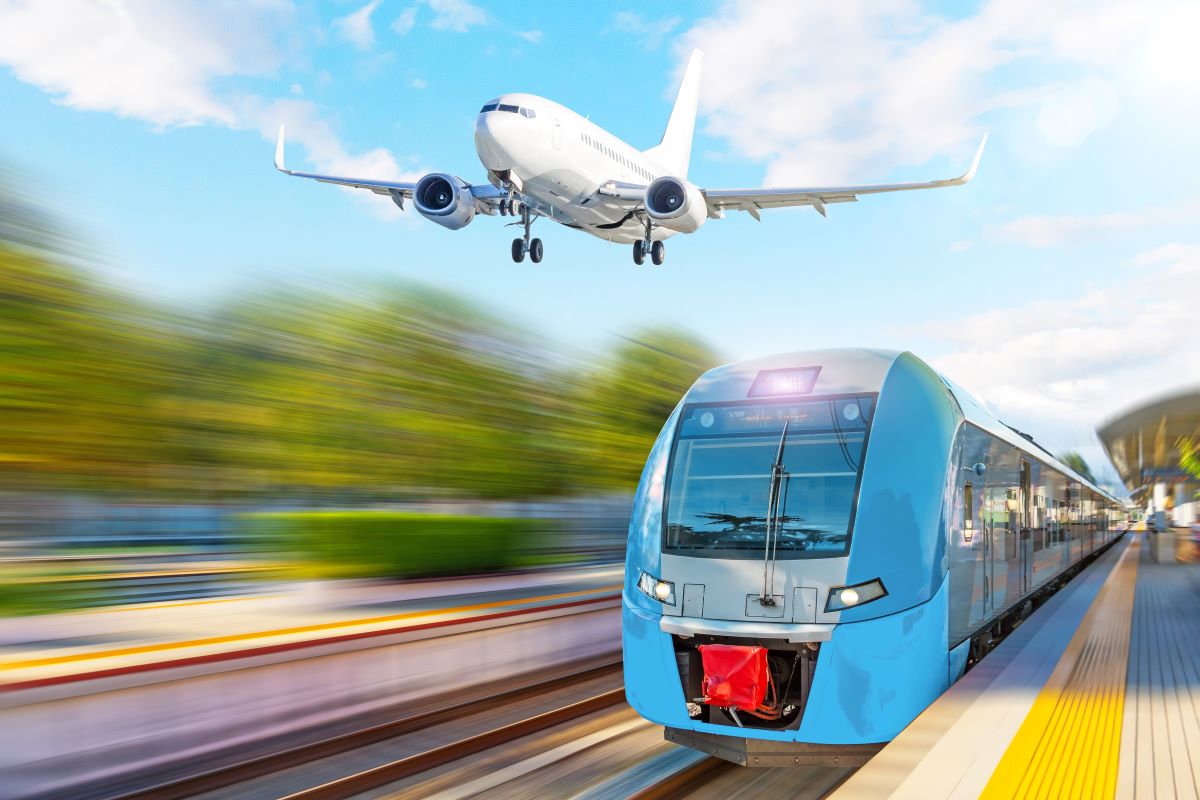Transportation: Trains Twice as Expensive as Flights in Europe. How to Reward Less Polluting Modes of Transport?
Traversing the distance between Rome and Vienna by train can amount to a staggering tenfold increase in cost compared to air travel. Greenpeace has undertaken a comprehensive examination of this sector and has proffered the concept of a “climate ticket.”
On average, train travel within Europe incurs double the expense compared to air travel, with some routes registering costs as high as thirty times more expensive.
A recent report by Greenpeace Central and Eastern Europe (CEE) has illuminated the shortcomings inherent in a transport system that disproportionately favors more environmentally damaging modes of mobility, such as air travel, to the detriment of greener alternatives like rail transport.
According to Greenpeace CEE’s analysis, tickets for 112 distinct European routes across nine distinct time frames were scrutinized, revealing that air travel is economically more viable than rail travel in a majority of cases, specifically, 71% of the time.
Within the purview of the 15 examined routes, including Italy (predominantly international), train travel proves to be two and a half times more expensive than air travel, placing our nation in fifth place across Europe in terms of the greatest disparity in cost between these two modes of transportation. The disparity is particularly notable when journeying from Rome to Vienna, where train travel can cost up to ten times more than air travel, or from London to Barcelona, where it can be up to thirty times pricier.
Low-cost airline carriers, which service 79% of the routes surveyed, often offer more cost-effective options than trains owing to their highly competitive pricing strategies. These carriers occasionally provide cheaper connecting flights when compared to airlines offering direct routes, albeit at the expense of contributing up to ten times more greenhouse gas emissions. Additionally, low-cost airlines capitalize on minimal legal labor standards and, at times, benefit from subsidies granted by local authorities.
Greenpeace maintains that the present imbalances within the transportation system translate into airlines being exempt from kerosene taxes and VAT on international flights, while also receiving subsidies funded by taxpayers. Conversely, railways bear the burden of energy taxes, VAT, and substantial railway tolls, which are mandated in the majority of countries.
To rectify this situation and render rail transport more economically competitive than air travel, Greenpeace calls upon European governments to introduce the concept of “climate tickets.” These long-term, user-friendly, and cost-effective tickets would be valid across all public transportation networks within a given country or region, encompassing trains and cross-border transit.
The financing of climate tickets could be sourced from various avenues, including levies on the excess profits of oil corporations, the gradual phasing out of environmentally detrimental subsidies, or the establishment of an equitable taxation system rooted in CO₂ emissions. Simultaneously, it is imperative to curtail subsidies to airline companies and airports, commencing with the gradual elimination of tax exemptions for kerosene.





